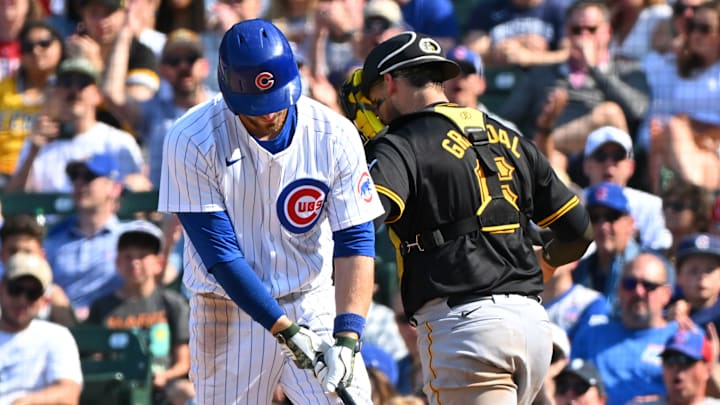One of the biggest pick-ups of the offseason for the Chicago Cubs, Michael Busch, is going through some growing pains in his first full MLB campaign. After a strong start at the plate, the former first-rounder has cooled considerably, with a .200/.284/.305 slash line since April 16.
Frankly, struggles such as these aren't out of the ordinary. Few rookies make the jump to the big league level and are able to put it on cruise control. The league adjusts to hitters and, as is the case with Busch, it's on them to make adjustments to get back on track.
Michael Busch (since 4/16)
— Chief Cub (@ChiefCub) May 20, 2024
.200 AVG
.284 OBP
.305 SLG
40.4 K%
10.1 BB%
72 wRC+
He hit a HR in 5 consecutive games leading up to this stretch. pic.twitter.com/fylXw8JlGA
The problem for Chicago is Busch's downturn at the plate aligned with the loss of key pieces in the lineup, including Cody Bellinger, Seiya Suzuki, Dansby Swanson and Nico Hoerner. When healthy, the Cubs have the makings of a deep 1 through 9. The problem so far in 2024 is the team has rarely, if ever, been at 100 percent.
Michael Busch is going through what most MLB rookies experience
His strikeout rate is now north of 35 percent on the year, putting him in the bottom three percent of hitters, and while an above-average walk rate has kept his overall numbers on the year afloat, the Cubs are going to need him to be a run-producer if they're going to win the division.
Again, if the Cubs were fully healthy, Craig Counsell could mix and match his lineup a bit more, shifting Bellinger to first and maybe playing the matchups a bit more. But we just watched a weekend of Miles Mastrobuoni and Nick Madrigal up the middle, which tells you about the current status of the roster.
Busch's struggles, paired with abysmal production behind the dish from Miguel Amaya and Yan Gomes, and the continued cool spell from Ian Happ have the Cubs in a tough spot. With Hoerner and Swanson expected to return this week, there's hope the team could be turning the corner, but it's clear this is a club that hasn't found its stride offensively.
The Cubs rank 12th of the 15 National League teams in runs and 13th in batting average over the last month and, while the rotation has been a bright spot, the simple truth is this: they'll need more consistent production top-to-bottom to come out the other side of a 162-game marathon intact.
